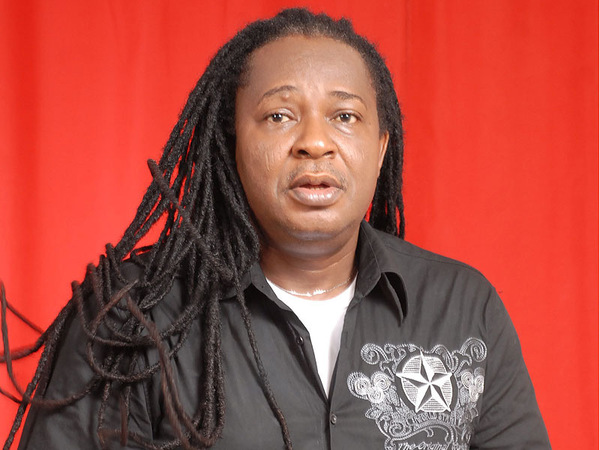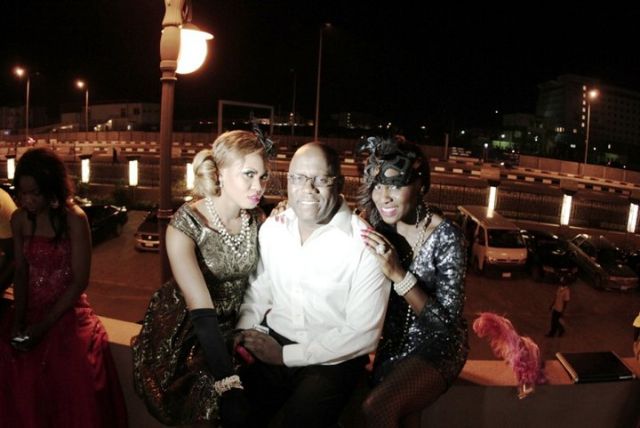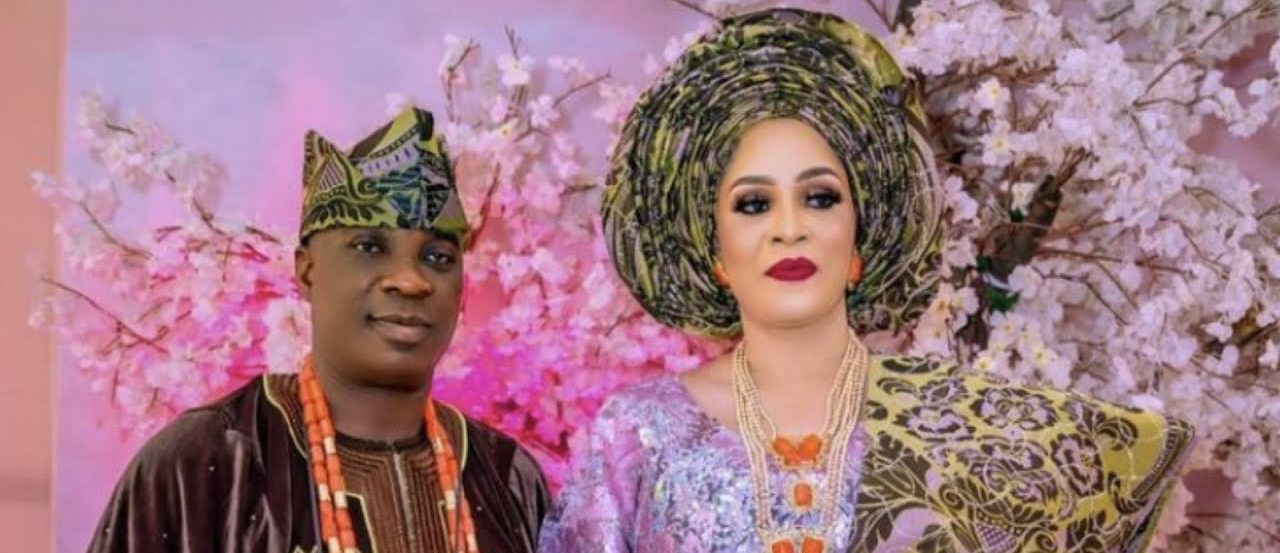
When I saw the title, “But for my dad, I would have been a gangster” I ignored reading it. This is Oritz Wiliki’s interview in the Saturday Sun, August 21, 2010. I had thought that it’s one of those Charly Boy and Oritz Wiliki’s public events when rented audience celebrate and are entertained with music and dancing, usually connected in Nigeria where people speak Spanish instead of English when it comes to corruption. I thought that I was going to read about the brouhaha between the Nigerian Copyright Commission (NCC), the Musical Copyright Society Nigeria (MCSN), the Copyright Society of Nigeria (COSON), and the Collective Management Organization (CMO) over the government’s approval and none-approval of which organisation that has the sole right of collecting the musicians’ copyrights, but I was not circumspect. One week later, I gave to read the interview of Wiliki who dazed the world with his prophetic debut, “Give me little time to fight the fire” in 1989. And, Wiliki didn’t disappoint. But, before I burgeon in this testament, may I thank one Dennis Ugbudian, who conducted the wonderful interview on Wiliki for the discerning minds to feed on.
It’s ‘I am sorry’ for any reading person who missed reading this interview. Although, I know that it’s axiomatic that, another man’s food could be another man’s poison. But, I think the interview is a food for all Black Africans, especially the Pan-Africanists. This Delta State-born music maestro takes one on a journey of courage, perseverance, tolerance, religion, inspiration, communalism, education, advise, enlightenment, advocacy, aspiration, Capitalism, just to mention but a few. Wiliki explicates his points in circumlocution, which makes the interview so interesting and poetic. Starting, Wiliki tells us that whenever we don’t see a man in the public does not mean that he is not working. He says that to the public the man might be quiet, but in his closet he is too busy with work. He encourages that little beginning shouldn’t be disdained, because it can take one to his or her aspired acme in the things of endeavour.
While he says that he was in their church choir and later became the leader of the choir, Wiliki also reveals how his father, Reverend J. I Wiliki was always preaching in campaign rallies and crusades, but music becomes his (Oritz) own medium of reaching out to people, even that his father was a good musician. Again, he reveals the difference between the father and him, saying that while his father campaigned and crusaded for Christ (which Wiliki said he enjoyed), Wiliki hates anything that is anti-blackism.
Hear him: “What I love is nature. I am a Pan-Africanist and as such, anything that is anti-blackism, I would fight it to the last.” This statement is expedient, coming at the hill most Black Africans are brainwashed to hate anything African. To this unorganised group of Africans, they even hated the continent of Africa. Unlike their Western counterparts, who hate Africans, but like Africa, because of the economic resources that are naturally embedded on our soil.
Wiliki literally teaches with the statement that every Black African should and must be proud of his or her Africanness and should stop being caught in the web of globalisation which is the brainchild of the West they are using to deride Africans of the remaining cultural relics left of colonialism. His statement teaches that Black Africans should decolonise their heart and dissuade playing the scripts they have read and are still reading, which the whites presented before us. His statement teaches that Black Africans are not going anywhere when they allow their natural dividends to be destroyed by the western civilisation. The question now before us is: Should we allow our envied and cherished communalism be pushed to extinction in place of Capitalism? Should we allow our envied and cherished hospitality culture be replaced with hostility culture? Our future as Black Africans lies in our hand.
I had always wondered to understand the “Idolatry” or the “Idol” in our traditional beliefs. I had heard and read scorns on our traditional beliefs by uninformed or misinformed persons and I have wondered to a large extent the good works these our nature given deities have done in protecting and securing our innocent people and lands and had concluded that some people didn’t understand the meaning of “Idol” in the real sense of it. “Idol” does perform miracles. “Idol” is dumb. Our deities are not dumb. I see anything African as a way of life and hate any practice that’s against humanism, but such practice can’t only be found in our traditional beliefs, as people are wont to saying. In the Solomon’s cathedral, what is, “Holy Ghost Fire!”? – as has become a way by the faithful for praying against their perceived enemies.
Oritz Wiliki enlightens us of the need to make other people stars before becoming star. This notion is African. We are known for our communal lifestyle, except in the few decades past that those who’re hell-bent in selling alien beliefs and lifestyle us are also selling Capitalism to us. Capitalism is not a good market, even though that many Black Africans have bought it and are still buying it and selling the same as well to their kiths and kin. Wiliki inspires us of the need and joy of human empowerment, resourcefulness and talent exploration, not exploitation, the later being one of the alien behaviours that the Black Africans are copying from the western world christened Capitalism. But, we forgot that Capitalism says, ‘Don’t be your brother’s keeper, but your brother’s kidnapper.’ And, because, many of our people are brainwashed by the western lifestyle, anybody opposed to the later is said to be primordial.
Wiliki sounds the trumpet of Communalism to the high heavens. He said: “…I have been a father in the business (music). I would say that I have been making stars before my stardom… great artistes like Majek Fashek, Ras Kimono, Mandators, Alex O, Black 7, and a host of others have felt me. You would always see my name at the back of the slip doing one thing or the other… I didn’t start playing as Oritz Wiliki. We started out by sectioning, playing instrument and backing other musicians…before I started releasing my own in 1989.”
It’s very unfortunate today that Capitalism does not allow some Blacks to be inspired before they do things – especially creative works. Many Blacks today follow peer influence, while others follow the crowd: throwing caution to the winds that not all in the crowd have succeeded. Some of our people send their underage children to school (when they were supposed to be at home learning informal education), because their neighbours have done. Majority of Black Africans today are practicing alien cultures and traditions to the detriment of ours. Many Blacks have refused researching and asking questions about the origin of things. Hardly our people follow their intuitions, they believe so much in the opinion of the expert. But, Wiliki warns against such behaviours and urges us to follow our aura.
Hear him: “The truth is that you don’t have to write when you are not inspired. I always aim to write songs that would stand the test of time because life itself is a circle. For some of us, we are doing it because it is a calling, even without knowing the impact it is going to have. Therefore, we must continue to make songs that are edifying and sensible even in 50 years time. That is, the song that is good for the archives.”
It is a known axiom in Africa that, united we stand, but divided we fall. Oritsebemigho Pupa Wiliki, popularly known as Oritz Wiliki, warns that those ‘media made stars’ should not be rejoicing yet, buttressing that no project that one person solely executed that there would not be flaws. He says that in the days he started to play music, it takes a process to become a star. But, what are we seeing today? Stars are made every day. Hear him: “Honestly, the media are behind the stars being made today.”
Today, the reggae brand of music known of Wiliki is gasping for the breath in the world of music, but he is yet to accept it. He categorically says that it were the same media that has made many musicians stars overnight that initiated the make-belief that that reggae is dying. He incites the incidence when the media made makosa became a brand of music in Nigeria that even the church played because it’s replete on the radios and televisions. However, he mellows down and says that the migration to abroad of some reggae artistes in Nigeria should be held responsible for the back pew reggae has occupied in the Nigerian music industry. He, however, reiterated that, “I don’t agree with you because reggae is up there in the sky. What you may say is that the genre of reggae has evolved over the years. Hip-hop is an off-shoot of reggae…”
In the voice of his mother, who’s from Edo and partly Owo in Ondo State, Wiliki admonishes us about her advise to him. He quotes her, “Oritz, the world would always expect from you what they cannot give you. They would hurt you bitterly and expect you to forgive them by merely saying, ‘I am sorry.’ They would always demand from you.”
He preaches against dishonesty and disappointment in human relations. And, he says, “So, I hate betrayals. If you checked the Bible, you would see that those who betrayed never had forgiveness, like Judas Iscariot and the rest. It means that is a very great sin to betray your friend or the trust given to you.” On marriage, he admonishes people to understand the difference between a home and a house. He says, “In homes, people always celebrate and enjoy themselves.” He tells us that there are several houses but very few homes and that women should abrogate ego in marriage and stoop to their duty even when the men are egoistic, because never in the history has two captains stayed in one ship.



















